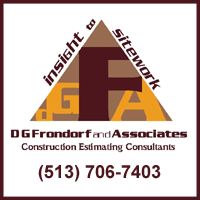Lower Price Hill Community Council president Dr. Jack Degano is asking for Councilmember Laketa Cole's help in stopping a proposed junkyard on a 7.8-acre site at 1951 State Avenue.
In a letter to Cole, Degano says that two letters he has written to City health commissioner Dr. Noble Maseru about the massive amount of storm water runoff and possible environmental damage have been ignored.
"His department has an obligation to citizens," Degano says. "We expect the Health Department to do its duty and have that land flood-free, cleaned up, and stabilized."
On December 5, a representative of the Health Department agreed with River Metals Recycling representatives that the company does not require a license to open a ferrous and non-ferrous scrap metals and junked car business in a residential section of Lower Price Hill.
Degano says that, in the experience of his community council, a junkyard does need Health Department permits under Sections 1021-5 through 1021-9 of the Cincinnati Municipal Code.
"I summarized the Health Department's own multi-faceted regulations pertaining to property owners where surface water enters a facility, and the major remedial work that is required by River Metals before the junkyard could open," he says.
Degano worries most about the unstable and porous hillside on the site, which was excavated in the late1920s to provide fill dirt for Union Terminal.
"River Metals own testing company, Thelen Associates, Inc., reported, 'ongoing instability of a hillside' that abuts the proposed junkyard, plus, 'There exist considerable amount of colluvial soils near the proximity of the steep cut slope...A mantle of soil sliding downslope develops colluvial soils at the toe of steep cut slopes in shale and limestone bedrock," he says.
In 1991, the City allowed the U.S. Army Corps of Engineers to dump 250,000 tons of dirt dredged from Mill Creek on top of the hill, causing torrents of muddy water to pour down State Avenue every time there's a heavy rain.
Degano worries about what else this muddy water might contain if the junkyard is allowed to exist, especially with shipments sitting on site for one to three weeks or more.
"Oil, gasoline, brake and steering fluids, radiator coolant, transmission fluid, transfer case lubricant, and toxins would cause faster oxidation of the metals, all of which, blended with Mill Creek dirt, would flood the sidewalk and street," he says.
And he doesn't think that the company will make the capital investments necessary to keep their operation from harming the neighbors, such as stabilizing the hillside, stopping the cascading rainwater, installing heavy duty drainage systems, covering metals to control oxidation, complying with environmental laws, frequently testing the water and soils, controlling pests and vermin....
"A David J. Joseph Company [River Metal's parent company] handled radioactive materials in Tampa in 1993," Degano says. "Also in Florida, a Joseph operation was found to be so contaminated as to warrant an EPA Superfund cleanup. It is not acceptable for the public health of Lower Price Hill for River Metals to cut corners to maximize profits."
Residents of Lower Price Hill soundly rejected the plan last October during a meeting of the community council.
"Lower Price Hill already has the Metropolitan Sewer District, two junked car lots, a large refuse hauling business, a cargo cleaning operation, and multiple companies that deal in hazardous wastes," Degano says. "After years of persistence, we recently had dismantled both an old tires dump, and yet another junked cars lot. The old crocks had been on the State Avenue lot so long that a stately oak tree had sprung forth from the bosom of a 1960 Oldsmobile."
A report on the matter from city manager Milton Dohoney Jr. is due before council by March 11.
Previous reading on BC:
River Metals to apply for junkyard use (11/13/08)
Lower Price Hill fighting proposed junkyard (10/9/08)
Tuesday, February 17, 2009
Lower Price Hill seeks Cole's help in stopping junkyard
Posted by
Kevin LeMaster
at
5:08 AM
![]()









